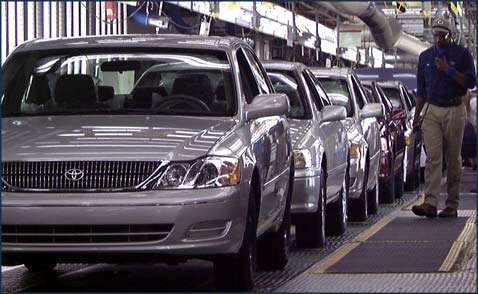Foreign automakers eye Iran market

By Sara Rajabova
The automobile industry stands as one of the most promising economic sectors to bring big profits to Iran after the lifting of sanctions.
Following a nuclear deal between P5+1 and Iran, the race has tightened for access to Iran’s auto market. European automakers, which were forced to leave the Iranian market after international sanctions on the Islamic Republic for its nuclear program, are now attempting to restore their previous shares of Iran’s vast car market.
German automakers Volkswagen and Daimler are reportedly in on track to return to the emerging market, which has a pent-up demand for quality cars after years of sanctions.
Executives of both companies accompanied German Economy Minister Sigmar Gabriel during his visit to Iran, alongside representatives of Siemens, Linde, BASF and GIZ in the 60-member-strong delegation.
Iranian Ambassador to Germany Ali Majedi has recently said German carmaker Volkswagen may commence sales in Iran by March 2016.
Iran’s IRNA news agency quoted Majedi as saying that Tehran and Berlin believe that Iran should be turned into a regional automotive hub. He further added that Iranian and German companies should cooperate to meet not only the Iranian market’s needs, but also the needs of the regional market as well.
“We expect the German side to provide finance, as well. Transferring technology and making investment are the goals which are followed by the two countries,” Majedi said.
Iranian MP Moayed Hosseini Sadr has said if foreign companies find their way to the Iranian automobile market and begin manufacturing cars jointly with Iranian carmakers, their products will find a lot of fans.
Sadr, who is member of the Iranian parliament’s Industry and Mining Commission, told Trend that due to the fact that Iranians are looking new options, it is likely that jointly-produced vehicles will be welcomed warmly.
He added that it is especially a good thing since labor is cheap in Iran, taxes are low, the market is exclusive, and neighboring countries like Afghanistan and Iraq can provide good markets for Iranian-made cars.
Iran produced more than 1.13 million cars in the past fiscal year, which ended on March 20. The output of sedans stood at 958,335 during the aforementioned period, a 53 percent rise year on year. Iran also produced 150,929 pickup trucks, 482 buses, and 179 minibuses in the 12-month period.
“It seems that investment in the Iranian car industry is attractive to foreigners, especially since we need one million new cars every year. Besides that, about 70 percent of the heavy vehicles in the country are old,” Sadr stated, adding that there is market for all sorts of vehicles in Iran.
Earlier, French companies which were forced to leave Iran’s huge market in 2012 amid Western sanctions have voiced willingness to return to the country, once a final nuclear deal is inked.
The automobile industry accounts for nearly 10 percent of Iran’s gross domestic product. The latest data shows that Iran ranks 18th on the list of the world’s top auto manufacturers. However, the country’s automotive industry needs modernization after years of sanctions.
Sanctions on Iran hit the automotive industry hard, slicing production by 1 million units from its peak of 1.6 million in 2011 and leading to 100,000 job redundancies.
--
Sara Rajabova is AzerNews’ staff journalist, follow her on
Twitter: @SaraRajabova
Follow us on Twitter @AzerNewsAz
Here we are to serve you with news right now. It does not cost much, but worth your attention.
Choose to support open, independent, quality journalism and subscribe on a monthly basis.
By subscribing to our online newspaper, you can have full digital access to all news, analysis, and much more.
You can also follow AzerNEWS on Twitter @AzerNewsAz or Facebook @AzerNewsNewspaper
Thank you!
